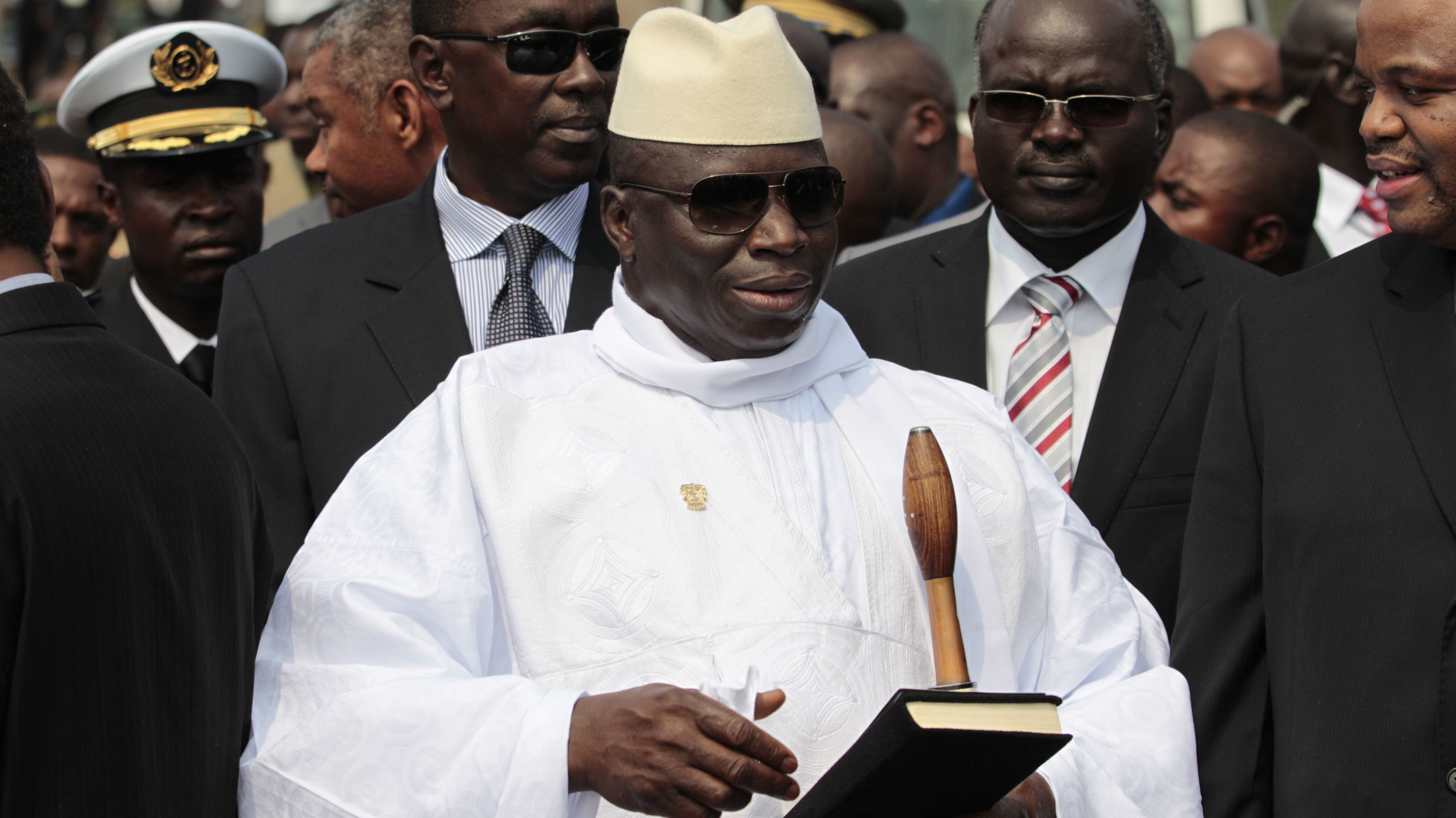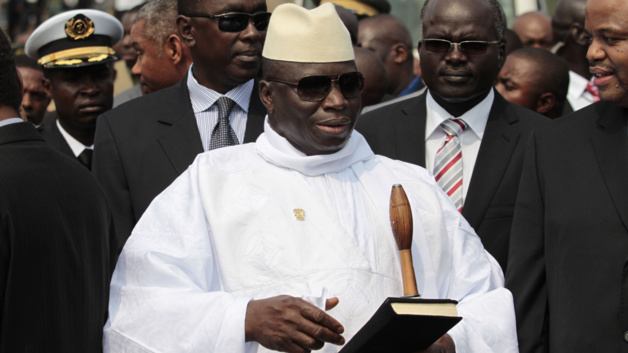No good news has been announced in Gambia since the last hours of 2014. On the night of Monday 29 to Tuesday 30 December, former Gambian soldiers undertook an attempted coup d’etat at the presidential palace in the capital of Banjul while president Yahya Jammeh was on a private visit to Dubai in the United Arab Emirates. According to Gambian military sources, a commando of seven heavily armed men arrived by canoe at the Marina Parade on the Banjul cliffside and opened fire on the presidential security forces. The group of soldiers were, in the end, neutralized. According to an unofficial toll, three men were killed during the attack, notably the leader of the small group, Lamin Sannah, an ex-captain and deserter of the Gambian army. The other revolutionaries are still on the run.
According to Agence France-Presse (AFP), the Gambian soldiers have been implementing a vast door-to-door operation of interrogating civilians since the 2nd January in order to find the participants of the putsch. More than a dozen soldiers and civilians have been arrested by the National Intelligence Agency (NIA), the country’s information service, known for their harsh and often radical methods. Radio France International reports that the inquiries since the aborted attack have led to the discovery of the revolutionary commando's attack plans in shipping containers in Banjul, along with a heavy artillery of automatic arms and explosives.
On his return to Gambia, Yahya Jammeh hammered home that it was not a matter of a coup d’etat but a terrorist attack by ‘rebels based in the United States, in Germany and in the United Kingdom,’ during a nationally televised speech the night of the 31st. He added that ‘there was no participation by elements of the Gambian armed forces in this attack, they were truly loyal.' Washington denied any involvement in the attempted overthrow: ‘The American government has played no role in the events that have taken place in Banjul,’ according to a representative from the Department of State. Incidentally, Jammeh did not fail, without naming names, to harshly threaten ‘those who advocate and recommend a change of regime by violence’ because they ‘will pay for it dearly.'
Fierce backlash the day after the putsch
This failed coup d’etat certainly seems to have triggered the Gambian president to harden his policies, a leader already known for having the country in an iron fist. The threats extend not only to all potential political opponents, but also to journalists and human rights activists. While constant tension and suspicion increases, four Gambian soldiers suspected of having taken part in the coup d’etat have left the country and gone to the authorities of Guinea Bissau, according to a source from the AFP, despite the denial by a Guinean government official of their presence there.
A wave of terror has hit Banjul since the attack. Despite the attempts by the president to reassure the Gambians and encourage them to return to ‘normal life,' the village seems subdued; the capital’s inhabitants remain shut away in their houses and businesses and banks have closed their doors for fear of reprisals. Only the demonstrations of support by civil servants and Gambian citizens for president Jammeh on the 5th January seem to have animated the streets of Banjul, as journalist Aisha Dabo recounts on her twitter account.
Jammeh, tyrant in disguise?
The spontaneity of these demonstrations nevertheless leaves room for doubt. Jammeh's reputation has gone from bad to worse in the eyes of other African leaders who often attribute him with traits of a tyrant; he has ever fewer allies in the region. The repercussions of the coup d’etat are becoming more and more worrisome for the international community, which fears an increase in government violence and severe control over the Gambians' freedom. All forms of protest against Jammeh’s regime is systematically repressed, as Jibrin Ibrahim, director of the Centre for Democracy and Development in Abuja (Nigeria), reported in an interview for RFI.
The autocratic president rules this ex-British colony, enclosed within the heart of Senegal, with an iron hand. The attack on the 30th December is not the only cloud on the horizon for the president: several attempted putsches have taken place since he himself came to power via a coup d’etat in 1994. Jammeh is currently in his fourth term as president of Gambia.





























